The development of information technology and applications in cyberspace has changed the face of society. Currently, Vietnam is considered one of the 20 countries with the highest Internet usage rate in the world with about 68.7 million users (accounting for 70.3% of the population). About 94% of Vietnamese users use the Internet regularly with an average usage time of up to 6 hours per day [1] . Previously, each "handwritten letter" sent by post took several days, but today people can send thousands of pages of text within seconds, thousands of kilometers away via the global information network Internet. Due to the characteristics of the Internet, the transmission speed blurs the boundaries of time and space, so information, personal opinions "unknown true or false", "unclear true or false", "unknown from where"... on social networks have the ability to quickly, deeply and widely influence many subjects. Social networks are increasingly penetrating people's lives as a practical tool for connecting information, entertainment, sharing values and doing business. For each person, especially the young generation, the Internet and social networks have become an indispensable part of life, so every day people interact and receive information in virtual space, thereby gradually forming awareness and from there, behavior creates a real impact on real society, real space.
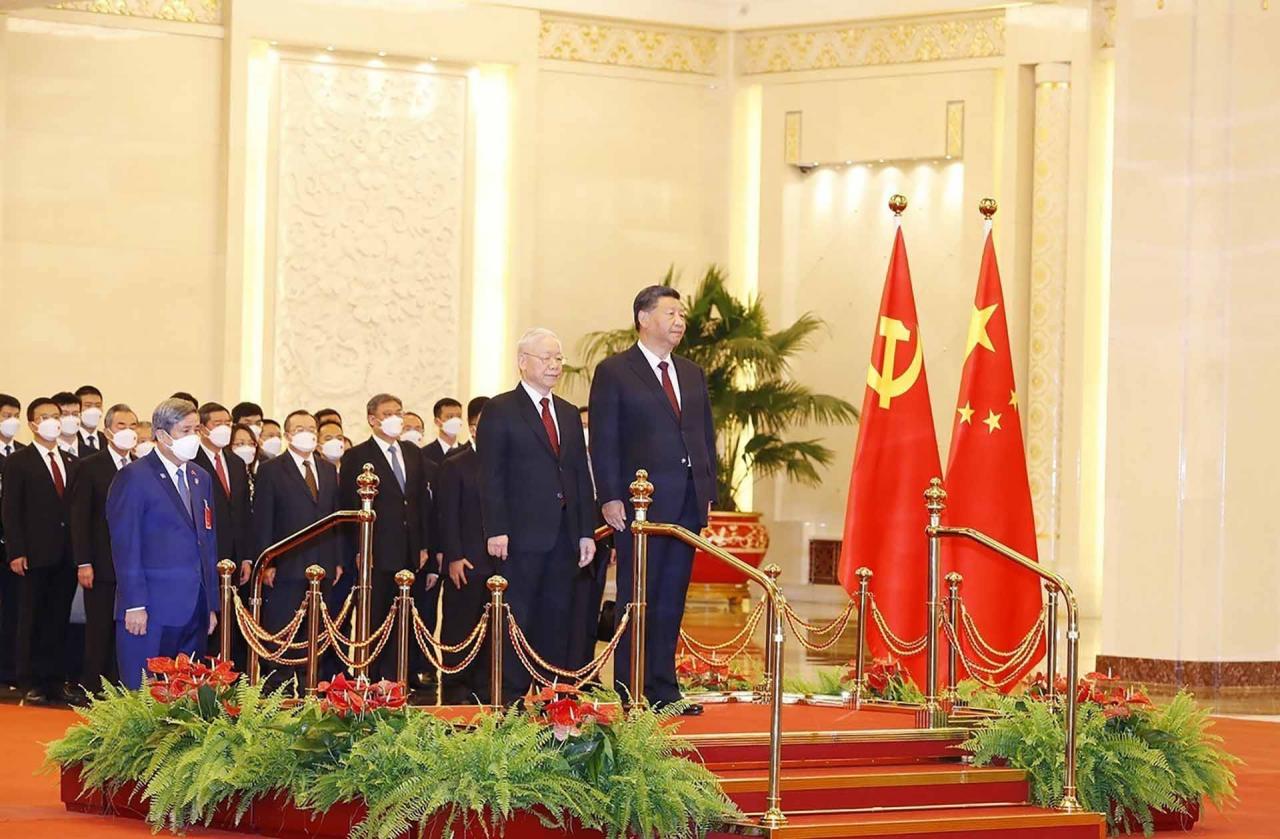
General Secretary Nguyen Phu Trong and General Secretary and President of China Xi Jinping review the honor guard. (Source: VNA)
The term foreign information (TTDN) is mentioned throughout the Party's directive documents such as Directive No. 11-CT/TW dated June 13, 1992 of the Secretariat of the 7th Term "On innovation and strengthening of foreign information work"; Directive No. 10-CT/TTg dated April 26, 2000 of the Prime Minister "On strengthening management and promoting the work of TTDN"; Directive No. 26-CT/TW dated September 10, 2008 of the Secretariat of the 10th Term on "Continuing to innovate and strengthen the work of TTDN in the new situation". However, it was not until 2010 that the concept of TTDN was mentioned in Decision No. 79/2010/QD-TTg dated November 30, 2010 of the Prime Minister promulgating the Regulation on state management of TTDN. Accordingly, TTĐN is information promoting the image of the nation, country, people, history, culture, and people of Vietnam; information about the Party's policies and guidelines, laws and policies of the Vietnamese State to the world and information about the world to Vietnam.
An important milestone in the state management of information technology was in 2015, when the Ministry of Information and Communications presided over and coordinated with relevant ministries, departments and branches to advise the Government and the Prime Minister to issue Decree No. 72/2015/ND-CP dated September 7, 2015 on the management of information technology activities. This is a "headless Decree", the most effective legal document to date in the management of information technology activities in particular and in the state management of information technology in general, serving as a basis for the unified implementation of information technology activities nationwide. Accordingly, " external information includes official information about Vietnam, information promoting the image of Vietnam and information about the world situation in Vietnam " and external information activities include providing official information about Vietnam, information promoting the image of Vietnam, information about the world situation in Vietnam and information explaining and clarifying.

Viettel Security's 24/7 information security incident monitoring and response. (Photo: VGP)
What is the concept of cyberspace and social networks? According to Clause 3, Article 2 of the 2018 Law on Cyber Security, cyberspace is a network of information technology infrastructure, including telecommunications networks, the Internet, computer networks, information systems, information processing and control systems, and databases; it is a place where people perform social behaviors without being limited by space and time.
According to Decree No. 72/2013/ND-CP dated July 15, 2013 of the Government on management, provision and use of Internet services and information on the network, social network (SN) is an information system that provides the network user community with services of storing, providing, using, searching, sharing and exchanging information with each other, including services of creating personal electronic information pages, forums, online chat, sharing of audio, images and other similar services. Thus, it can be understood that SN is a part of cyberspace.
Defending the Fatherland and fighting against foreign invasion is the most important foreign affairs function of any state. In our country, building and defending the country always go hand in hand, which is a characteristic of our national history. Therefore, for our State, the issue of defending the Fatherland has always been identified as one of the strategic tasks of the Vietnamese revolution. Right after the August Revolution in 1945, at the first meeting of the Provisional Government, one of the six urgent tasks of our people was identified as: fighting foreign invaders and preserving national independence. Therefore, in the Preamble of the 1946 Constitution, the National Assembly identified: “ The task of our nation in this period is to preserve the territory, gain complete independence and build the nation on a democratic foundation”.
In Chapter II of the 1946 Constitution, there are four basic obligations of Vietnamese citizens, two of which are to defend the Fatherland and to join the army. When the resistance war against French colonialism entered the stage of general counter-offensive, our State also stipulated the obligation to resist.
After peace was restored in the North, the South was still temporarily occupied, our State still considered defending the Fatherland as one of the strategic tasks of the Vietnamese revolution. In 1959, the National Assembly passed the Constitution which stipulated:
“Defending the Fatherland is the most sacred and noble duty of citizens of the Democratic Republic of Vietnam. Citizens have the duty to perform military service to protect the Fatherland” (Article 42 of the 1959 Constitution).
After the South was completely liberated, although the country was independent and unified, protecting the Fatherland was still one of the strategic tasks and the 6th National Assembly devoted a separate chapter (Chapter IV) of the 1980 Constitution to regulate the most basic issues in protecting the Fatherland. In particular, from the 1980 Constitution up to now, our State and people have had a new awareness of protecting the Fatherland: "Protecting the Fatherland is the sacred duty and supreme right of citizens" (Article 45 of the 2013 Constitution).
Thus, defending the Fatherland is not only a compulsory duty but also a basic right of citizens on a voluntary basis. This new awareness originates from the reality of Vietnamese society: building and defending the country; national independence and the happiness of each family and individual... are always linked together.
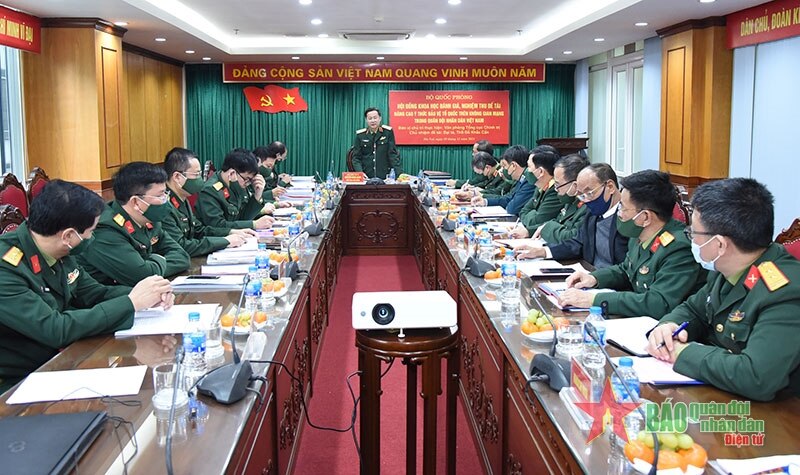
The Ministry of National Defense accepted the project "Raising awareness of protecting the Fatherland in cyberspace in the Vietnam People's Army"
Today, the issue of defending the Fatherland is also one of the two strategic tasks of the Vietnamese revolution, especially in the context of hostile forces continuing to sabotage, incite riots, and promote "peaceful evolution" activities. Therefore, in the 2013 Constitution, there is still a chapter (Chapter IV) to regulate "defending the Fatherland". Defending the Fatherland is the cause of all people. The task of defending the Fatherland is closely linked to the task of protecting political security and social order.
To protect the Fatherland of Vietnam and maintain national security, our State advocates: “... consolidating and strengthening the national defense and people's security, with the core being the people's armed forces; promoting the country's overall strength to firmly protect the Fatherland, contributing to protecting peace in the region and the world. Agencies, organizations, and citizens must fully perform national defense and security tasks” (Article 64 of the 2013 Constitution).
Thus, consolidating and strengthening the national defense and people's security is the motto to protect the Fatherland and national security. This motto originates from the class nature of our State - a State of the people, by the people and for the people, as well as from the reality of thousands of years of building and defending the country of our people. With the guiding ideology: taking the people as the root in the cause of protecting the Fatherland and national security, our State determines that this is the cause of all the people. Therefore, the state must promote the combined strength of the entire people and the entire political system, gradually strengthen the country's defense and security potential, firmly build a national defense, a national defense posture associated with people's security and people's security posture, improve the quality of the people's armed forces, prevent and defeat all plots and activities that cause political and social instability, violate independence, sovereignty, and territorial integrity, effectively prevent and punish all types of crimes, and ensure good social order and safety. To ensure national defense and security, it is necessary to: (1) closely combine the two strategic tasks of the current Vietnamese revolution: building socialism and protecting the Fatherland; (2) combine national defense and security with the economy; (3) link defense tasks with security tasks; (4) closely coordinate defense and security activities with foreign affairs activities; (5) Strengthening national defense and maintaining national security must be considered an important and regular task of the Party, State, the entire army and the entire people; (6) strengthening state management of national defense and security; (7) strengthening the Party's leadership over the army and police, and over the cause of strengthening national defense and security; (8) strengthening the great national unity bloc, taking the alliance of the working class with the peasantry and the intelligentsia as the foundation; promoting the people's role as masters in protecting the Fatherland and people's security.
Documents of the 13th National Party Congress determined: "Firmly protect the independence, sovereignty, unity, and territorial integrity of the Fatherland, protect the Party, the State, the people, the socialist regime, the culture, and national interests; maintain a peaceful environment, political stability, national security, and human security; build an orderly, disciplined, safe, and healthy society to develop the country in a socialist orientation". Thus, the goals, requirements, and tasks of national defense and security continue to be consistently and consistently affirmed by our Party, but with clearer and more comprehensive supplements in both content and scope of protection . The highlight here is clearly stated in this document: The goal of protecting the Fatherland is not simply to respond to war; but the more important and essential issue is to create strength to maintain political stability and a peaceful environment, in order to build and develop the country in a socialist orientation . Therefore, in this article, the concept of protecting the Fatherland is understood as building and developing the country, refuting and opposing the wrong views of hostile forces in cyberspace.
Currently, with the characteristics of the new situation: (1) competition in information with the participation of modern technology, the risk of information warfare, psychological warfare; the clash of interests between countries will shift from the field, armed, legal to the information and propaganda front - a typical example of China's Three Warfares in the East Sea; (2) non-traditional security, democracy and human rights issues continue to dominate traditional security. Protecting national security and protecting the Fatherland in the current situation includes good compliance with national and international laws, good practice of legal standards and application, leadership, and proactive participation in creating international rules of the game; (3) Vietnam is in an important geopolitical position, continuing to face risks that information and propaganda in general and TTĐN in particular will be the face of many conflicts, forcing more efforts to effectively protect the Fatherland early and from afar.
Some issues on cyberspace in the task of protecting the Vietnamese Fatherland:
Cyberspace has been bringing many positive values to the development of society, organizations and individuals. Cyberspace helps people interact more multi-dimensionally, reflecting more vividly and immediately with all aspects of life and social relationships. This has turned cyberspace into a new social space, where people can perform their social behaviors, such as communication, creativity, labor, production, consumption, learning and entertainment, without being limited by geography, language, space and time.
However, due to its openness, with the characteristics of freedom, diversity, equality, and the blurred boundaries between reality and virtuality, cyberspace brings many challenges to national defense. Cyberspace also contains a lot of fake, untrue, unverified information, insulting the honor and dignity of individuals, infringing on the rights and legitimate interests of organizations. The situation of information disruption, spreading false and sensational rumors to attract attention on cyberspace is increasing, affecting the good cultural values of the community. Cyberspace has become the leading powerful tool for hostile forces to exploit to sabotage the Party's ideological foundation, political transformation, and terrorism.
Currently, there are regularly over 3,000 blogs, nearly 500 Facebook fan pages; over 100 Youtube pages and nearly 10,000 Facebook accounts posting hundreds of thousands of news and articles with distorted content against the Party and the State; slandering, defaming and insulting organizations, individuals and leaders.
To propagate wrong views, hostile forces increasingly use many different tricks and methods, targeting many different audiences, especially young people. Specifically identified through:
- Regarding the goal: attacking the Party's ideological foundation, the Party's position and leadership role in relation to the State and society, the goal and path to socialism, and the cause of building and defending the Fatherland of our people under the Party's leadership.
- Regarding the content: (i) propagandizing to sabotage the Party's ideological foundation, defaming Marxism-Leninism, Ho Chi Minh's thought, denying the Party's leadership role; (ii) spreading a lot of bad and toxic information on cyberspace about issues related to the background, life, and career of leaders and senior leaders of the Party and State in order to defame the honor and reputation of leaders and senior leaders of the Party and State; (iii) distorting and denying the Party's viewpoints, policies, and guidelines, the State's current policies and laws, especially the Party's innovation policy; (iv) denying the achievements made in past wars and in the renovation process, distorting the reality of limitations and weaknesses in social management, loopholes and shortcomings in implementing policies and laws, or complicated incidents arising in ethnic and religious areas in order to incite and attract people of all walks of life into protest activities, causing insecurity, political disorder, and social order and safety; (v) propagandizing, inciting, attracting, gathering public opinion, and causing confusion in public opinion.
- Regarding forms and means: with the development of science and technology, social networking platforms, the forms and means of propaganda, dissemination of bad, toxic, distorted and destructive information by hostile forces are increasingly rich, diverse and sophisticated, mainly through means such as: (i) Vietnamese language radio stations, hundreds of Vietnamese newspapers, magazines and publishers; (ii) thousands of fake websites; (iii) blogs, social networking platforms; (iv) livestream (online reporting) or through conversation services (chat), online exchanges, online forums (forums). Online conversations include conversations using text (text), using words (voice), using images (video); (v) email...
- Timing: taking advantage of "sensitive" political and social events such as: the arrest and handling of high-ranking officials for corruption; the trial of law-breaking opponents, or before and after congresses at all levels.
- Targeted objects: The anti-Party propaganda activities of reactionary forces are mainly directed at intellectuals, artists; cadres, party members, especially retired cadres, cadres, party members showing signs of dissatisfaction, degradation in ideology, politics, morality, lifestyle, showing signs of self-evolution, self-transformation; the young generation, especially students; workers... or connecting and attracting political opportunists including incumbent cadres, retired generals and opposing elements among intellectuals, artists to intensify anti-Party activities, promote "bourgeois democracy", "civil society", "democratic society"...
(continued)
Author :
Dinh Tien Dung - Deputy Director of the Department of External Information, Ministry of Information and Communications
Mai Thi Thu Lan - Specialist of the Department of External Information, Ministry of Information and Communications



![[Photo] Parade to celebrate the 50th anniversary of Laos' National Day](/_next/image?url=https%3A%2F%2Fvphoto.vietnam.vn%2Fthumb%2F1200x675%2Fvietnam%2Fresource%2FIMAGE%2F2025%2F12%2F02%2F1764691918289_ndo_br_0-jpg.webp&w=3840&q=75)
![[Photo] Worshiping the Tuyet Son statue - a nearly 400-year-old treasure at Keo Pagoda](/_next/image?url=https%3A%2F%2Fvphoto.vietnam.vn%2Fthumb%2F1200x675%2Fvietnam%2Fresource%2FIMAGE%2F2025%2F12%2F02%2F1764679323086_ndo_br_tempimageomw0hi-4884-jpg.webp&w=3840&q=75)





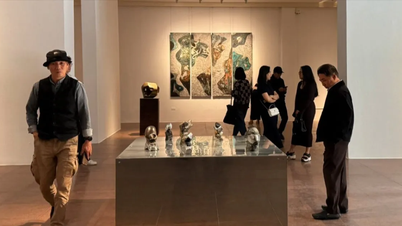



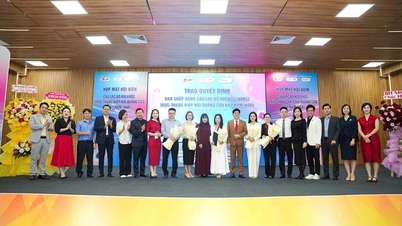

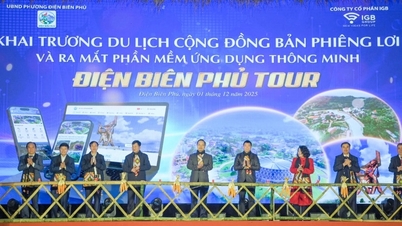





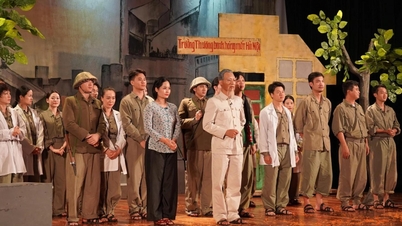
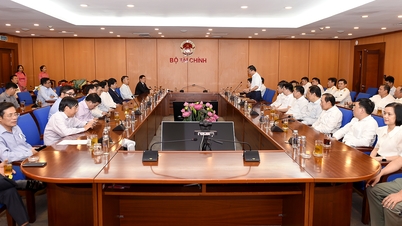


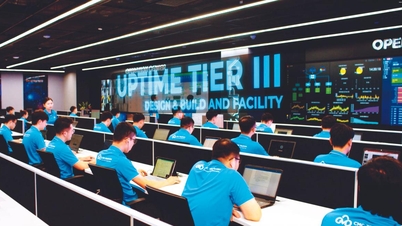

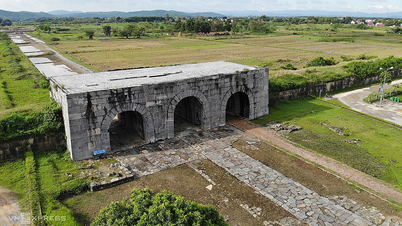



































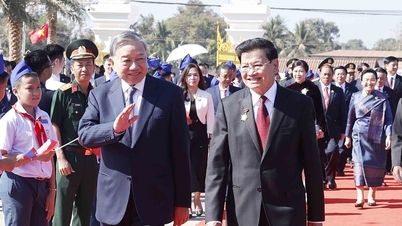
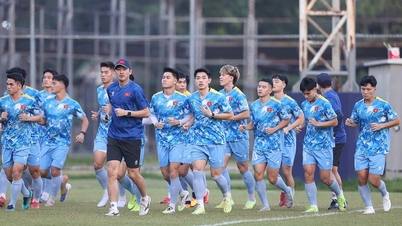



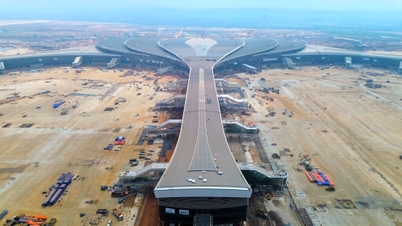

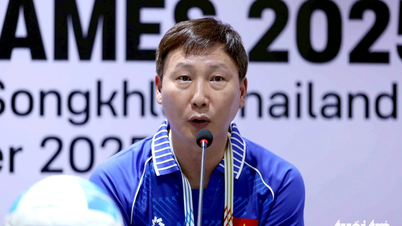

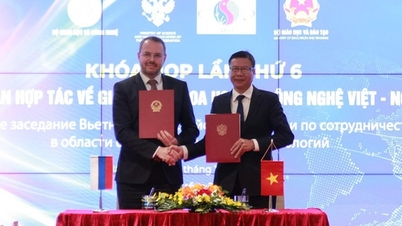
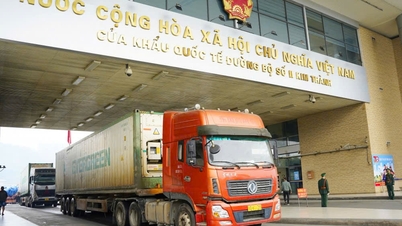

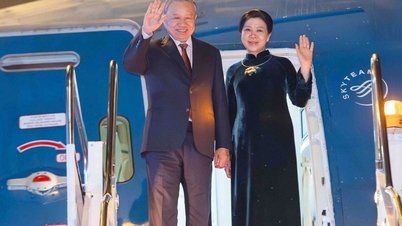

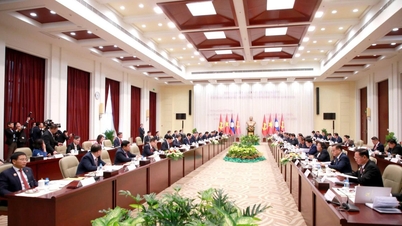



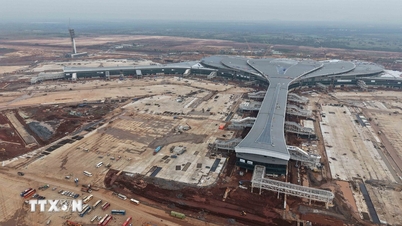

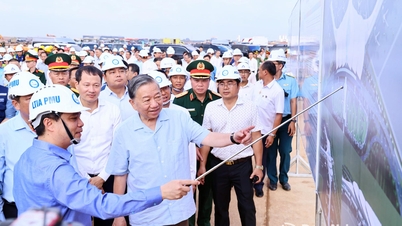


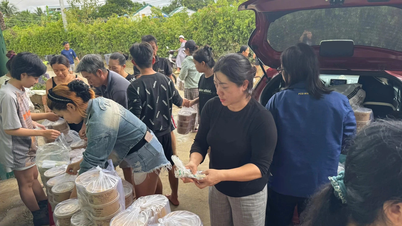
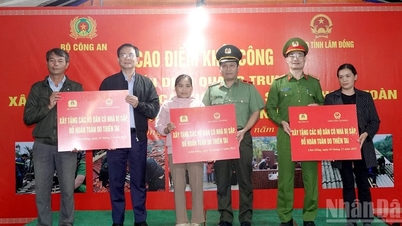













Comment (0)